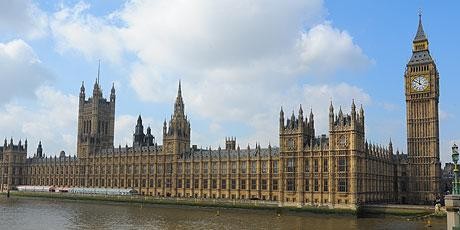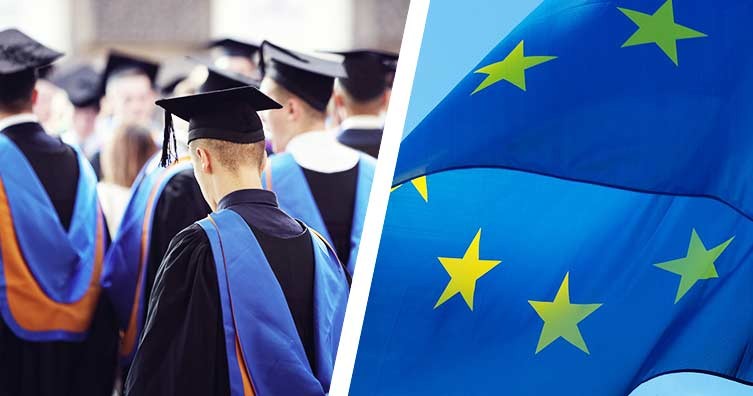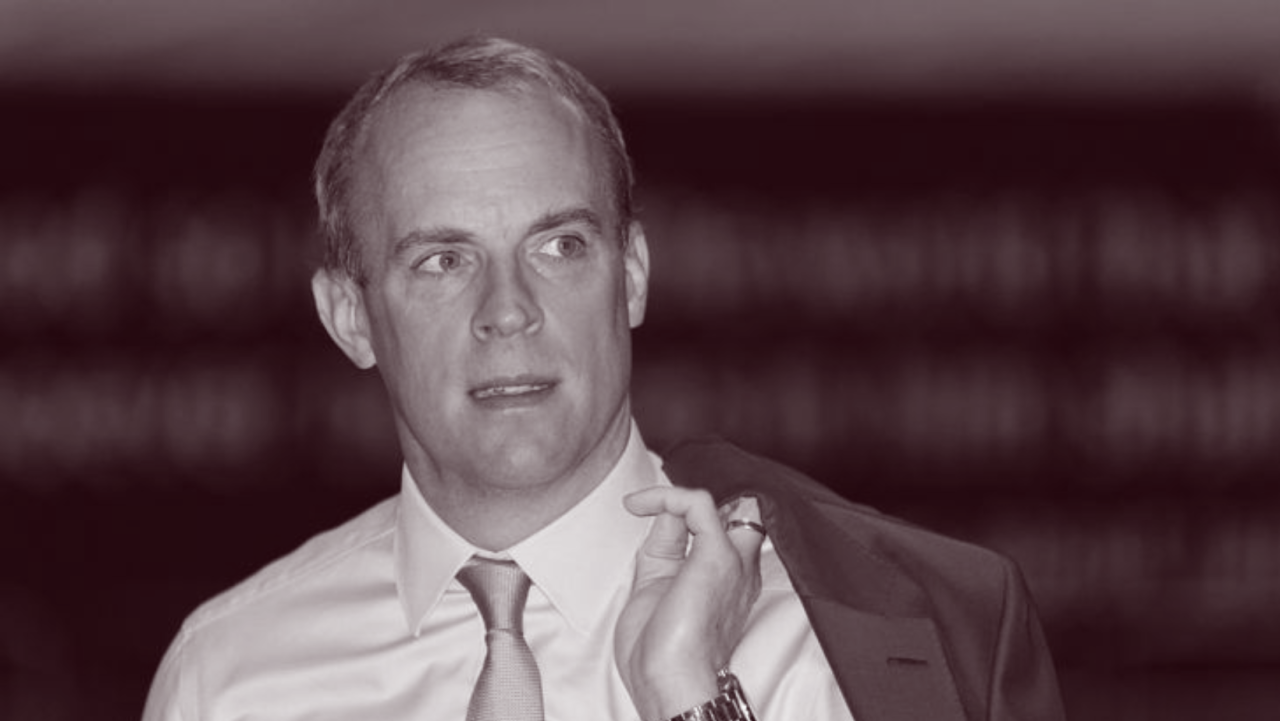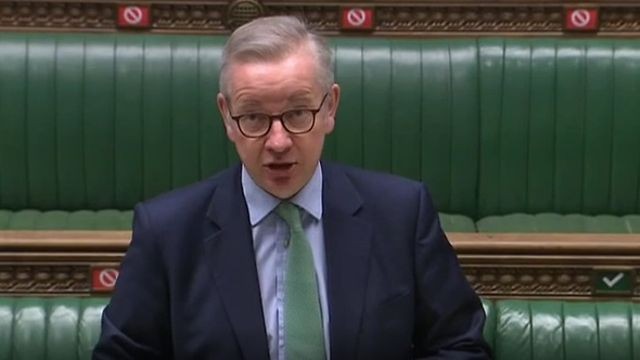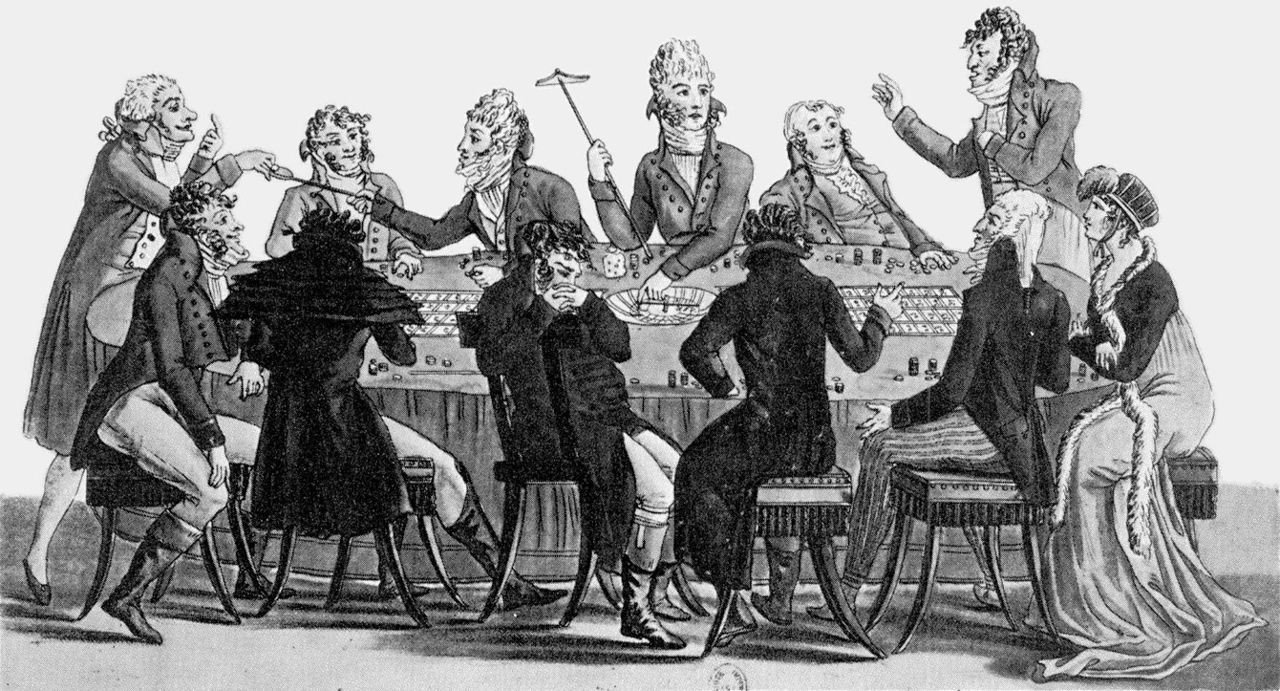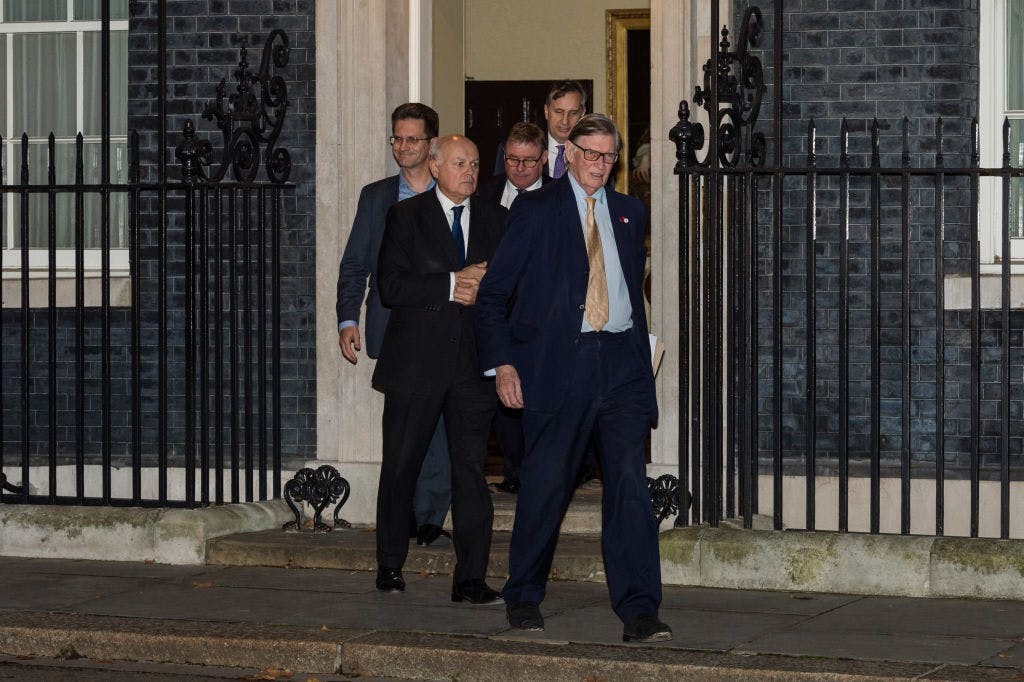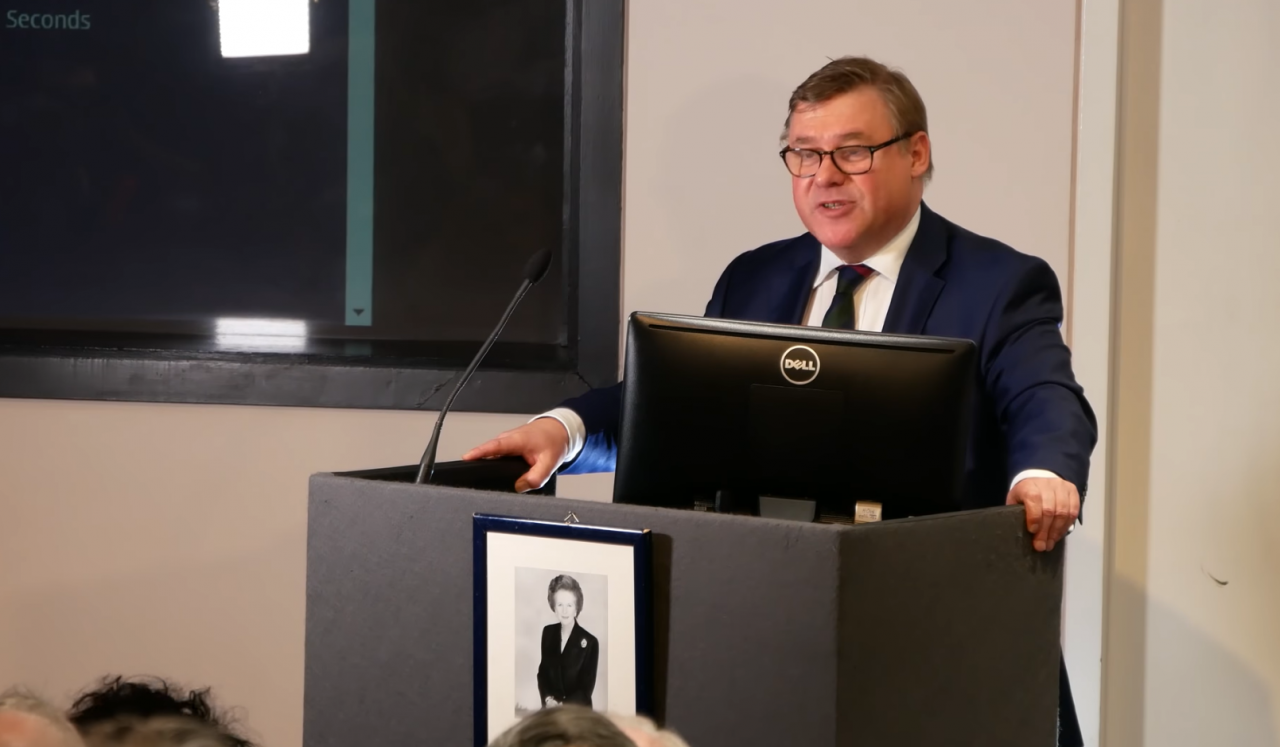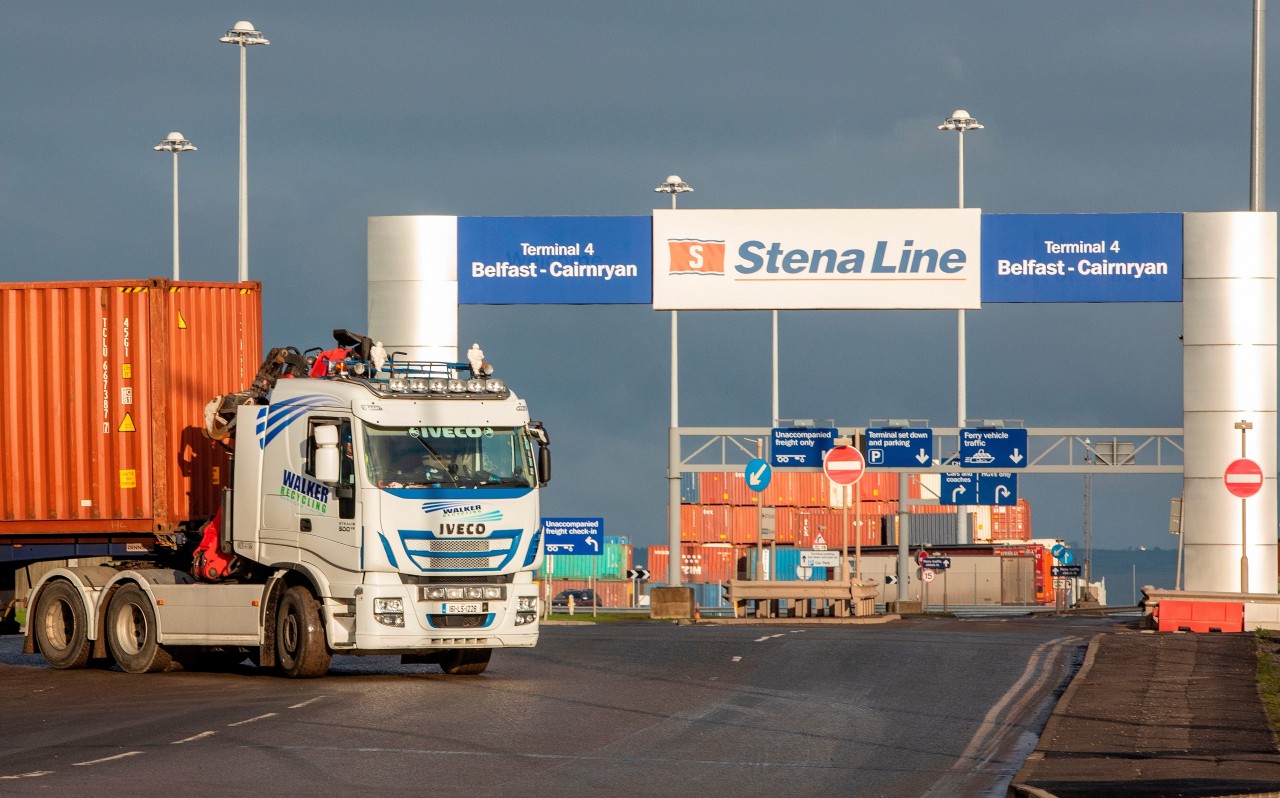Bruges Group Blog
[pb_row ][pb_column span="span12"][pb_heading el_title="Article Title" tag="h4" text_align="inherit" font="inherit" border_bottom_style="solid" border_bottom_color="#000000" appearing_animation="0" ]Opinion poll shows Dutch opposition to the EU is strong and can win.[/pb_heading][pb_heading el_title="Article Title 3" tag="h3" text_align="inherit" f...
[pb_row ][pb_column span="span12"][pb_heading el_title="Article Sub Title" tag="h4" text_align="inherit" font="inherit" border_bottom_style="solid" border_bottom_color="#000000" appearing_animation="0" ]Leading businessmen, politicians and academics talk with Paulina Sienniak and Ben Michael about how Brexit will work and what it means.[/pb_heading...
[pb_row ][pb_column span="span12"][pb_heading el_title="Article Title" tag="h4" text_align="inherit" font="inherit" border_bottom_style="solid" border_bottom_color="#000000" appearing_animation="0" ]Ireland’s political Establishment is only now realising that Brexit really does mean Brexit and that the case for an accompanying Irexit is overwhelming. Irish opinion is likely to move in this direction over the coming two years and UK policy-makers should encourage that.[/pb_heading][pb_heading el_title="Article Title 3" tag="h4" text_align="inherit" font="inherit" border_bottom_style="solid" border_bottom_color="#000000" appearing_animation="0" ]Dr Anthony Coughlan[/pb_heading][pb_heading el_title="Article Title 3" tag="h5" text_align="inherit" font="inherit" border_bottom_style="solid" border_bottom_color="#000000" appearing_animation="0" ]22nd February 2017[/pb_heading][pb_divider el_title="Divider 1" div_margin_bottom="30" div_border_width="2" div_border_style="solid" div_border_color="#0151a1" appearing_animation="0" ][/pb_divider][/pb_column][/pb_row][pb_row ][pb_column span="span3"][pb_button el_title="PDF Link : Delete this component if it is not required 2" button_text="Read the full research online" link_type="url" button_type_url="/images/papers/brexit-irexit.pdf" open_in="new_browser" button_alignment="inherit" button_size="btn-sm" button_color="btn-primary" appearing_animation="0" ][/pb_button][/pb_column][pb_column span="span9"][pb_text el_title="Article Text" width_unit="%" enable_dropcap="no" appearing_animation="0" ]
For forty years from 1973 the Republic was a major recipient of EU money through the Common Agricultural Policy. Since 2014 the Republic has become a net contributor to the EU Budget. In future money from Brussels will be Irish taxpayers’ money recycled. This removes the principal basis of Irish europhilia, official and unofficial.
If Dublin seeks to remain in the EU when the UK leaves it will have to pay more to the EU budget to help compensate for the loss of Britain’s net contribution. A bonus of leaving along with the UK on the other hand is that it would enable the Republic to get its sea-fisheries back - the value of annual fish-catches by foreign boats in Irish waters being a several-times multiple of whatever money Ireland got from the EU over the years.
As regards trade and investment, the Republic sends 61% by value of its goods exports and 66% of its services exports to countries that are outside the continental EU26, mostly English-speaking. The USA is the most important market for its foreign-owned firms and the UK for its indigenous ones. Economically and psychologically it is closer to Boston than Berlin and to Britain than Germany.
[/pb_text][pb_button el_title="PDF Link : Delete this component if it is not required" button_text="Read the full research online" link_type="url" button_type_url="/images/papers/brexit-irexit.pdf" open_in="new_browser" button_alignment="inherit" button_size="btn-sm" button_color="btn-primary" appearing_animation="0" ][/pb_button][/pb_column][/pb_row]
[pb_row ][pb_column span="span12"][pb_heading el_title="Article Title" tag="h4" text_align="inherit" font="inherit" border_bottom_style="solid" border_bottom_color="#000000" appearing_animation="0" ]How the UK should reorganise its university and research programmes[/pb_heading][pb_heading el_title="Article Title 3" tag="h4" text_align="inherit" font="inherit" border_bottom_style="solid" border_bottom_color="#000000" appearing_animation="0" ]Robert Yee[/pb_heading][pb_heading el_title="Article Title 3" tag="h5" text_align="inherit" font="inherit" border_bottom_style="solid" border_bottom_color="#000000" appearing_animation="0" ]9th February 2017[/pb_heading][pb_divider el_title="Divider 1" div_margin_bottom="30" div_border_width="2" div_border_style="solid" div_border_color="#0151a1" appearing_animation="0" ][/pb_divider][/pb_column][/pb_row][pb_row ][pb_column span="span3"][pb_image el_title="Article Image if required DELETE Column if not required" image_file="images/globaleducation.jpg" image_alt="Type text for SEO (example Bruges Group : Image Title)" image_size="fullsize" link_type="no_link" image_container_style="no-styling" image_alignment="inherit" appearing_animation="0" ][/pb_image][pb_button el_title="PDF Link : Delete this component if it is not required 2" button_text="Read the full research online" link_type="url" button_type_url="/images/papers/aglobaleducation.pdf" open_in="new_browser" button_alignment="inherit" button_size="btn-sm" button_color="btn-primary" appearing_animation="0" ][/pb_button][/pb_column][pb_column span="span9"][pb_text el_title="Article Text" width_unit="%" enable_dropcap="no" appearing_animation="0" ]
The UK has the ability to leverage current networks, continue to fund its current research programmes, and expand funding for scientific innovations. Going forward, the country will have to restructure its funding and knowledge-transfer programmes with its EU allies, and maintain an open environment with visas for people working on high-impact research projects. Furthermore, and almost simultaneously, the UK will need to look to partners in the US and the rest of the world for new programmes as well. Thus, a three-pronged approached is necessary for the UK for the future:
1. Encourage study at UK universities for both EU and non-EU countries
2. Promote international collaboration and innovative research ideas
3. Provide funding and financial aid to programs covered in #1 and #2
[pb_row ][pb_column span="span12"][pb_heading el_title="Article Sub Title" tag="h4" text_align="inherit" font="inherit" border_bottom_style="solid" border_bottom_color="#000000" appearing_animation="0" ]The Supreme Court has no jurisdiction in preventing the Prime Minister from invoking Article 50 to leave to EU. Its ruling is wrong. Jurisdiction w...
Scotland’s former First Minister Alex Salmond and (then) Deputy First Minister Nicola Sturgeon in 2007, at the launch of Choosing Scotland’s Future – a White Paper on a possible independence referendum. Picture by The Scottish Government. Scottish First Minister Nicola Sturgeon has commented on several occasions in recent weeks on the subject ...
[pb_row ][pb_column span="span12"][pb_heading el_title="Article Title" tag="h4" text_align="inherit" font="inherit" border_bottom_style="solid" border_bottom_color="#000000" appearing_animation="0" ]The PM, Theresa May, must focus on eliminating tariffs and clearing the EU's burdensome barriers to trade[/pb_heading][pb_heading el_title="Article Tit...
[pb_row ][pb_column span="span12"][pb_heading el_title="Article Sub Title" tag="h4" text_align="inherit" font="inherit" border_bottom_style="solid" border_bottom_color="#000000" appearing_animation="0" ]To escape the damage caused by the euro, and the resulting problems of mass migration, Brexit is essential for the UK[/pb_heading][pb_heading el_ti...
[pb_row ][pb_column span="span12"][pb_heading el_title="Article Sub Title" tag="h4" text_align="inherit" font="inherit" border_bottom_style="solid" border_bottom_color="#000000" appearing_animation="0" ] The EU's single currency, the Euro, is being unbalanced by the strength of the German economy. The undervalued Euro is used by Germany in a beggar...
[pb_row ][pb_column span="span12"][pb_heading el_title="Article Sub Title" tag="h4" text_align="inherit" font="inherit" border_bottom_style="solid" border_bottom_color="#000000" appearing_animation="0" ]Whichever form Brexit eventually takes, whether ‘hard’ or ‘soft’; most parties would like the transition to be as painless and smooth as possible. ...
[pb_row ][pb_column span="span12"][pb_heading el_title="Article Sub Title" tag="h4" text_align="inherit" font="inherit" border_bottom_style="solid" border_bottom_color="#000000" appearing_animation="0" ]The EU is a dysfunctional organisation in the area of corporate tax[/pb_heading][pb_heading el_title="Date" tag="h5" text_align="inherit" font="inh...
[pb_row ][pb_column span="span12"][pb_heading el_title="Article Sub Title" tag="h4" text_align="inherit" font="inherit" border_bottom_style="solid" border_bottom_color="#000000" appearing_animation="0" ] Any withdrawal agreement must look at these issues and find practical solutions to make sure that goods enter the EU as seamlessly as possible.[/p...
[pb_row ][pb_column span="span12"][pb_heading el_title="Article Sub Title" tag="h4" text_align="inherit" font="inherit" border_bottom_style="solid" border_bottom_color="#000000" appearing_animation="0" ]The very purpose of the referendum was to establish a decision-making procedure for leaving the EU. This procedure was implemented by the June refe...
[pb_row ][pb_column span="span12"][pb_heading el_title="Article Sub Title" tag="h4" text_align="inherit" font="inherit" border_bottom_style="solid" border_bottom_color="#000000" appearing_animation="0" ]HMRC has set aside £55 billion to cover the potential cost of payments, including interest, which the European Court of Justice will force upon the...
[pb_row ][pb_column span="span12"][pb_heading el_title="Article Sub Title" tag="h4" text_align="inherit" font="inherit" border_bottom_style="solid" border_bottom_color="#000000" appearing_animation="0" ]For the City of London membership of the European Union is a double-edged sword. Here the Bruges Group explains how this important industry can thr...
[pb_row ][pb_column span="span12"][pb_heading el_title="Article Sub Title" tag="h4" text_align="inherit" font="inherit" border_bottom_style="solid" border_bottom_color="#000000" appearing_animation="0" ]Article 50 will be triggered, and the UK will leave the EU[/pb_heading][pb_heading el_title="Date" tag="h5" text_align="inherit" font="inherit" bor...
[pb_row ][pb_column span="span12"][pb_heading el_title="Article Sub Title" tag="h4" text_align="inherit" font="inherit" border_bottom_style="solid" border_bottom_color="#000000" appearing_animation="0" ]Does Brexit mean Brexit, with the change that we need, or will it just be business as usual[/pb_heading][pb_heading el_title="Date" tag="h5" text_a...
[pb_row ][pb_column span="span12"][pb_heading el_title="Article Sub Title" tag="h4" text_align="inherit" font="inherit" border_bottom_style="solid" border_bottom_color="#000000" appearing_animation="0" ]An earthquake in EU / US relations[/pb_heading][pb_heading el_title="Date" tag="h5" text_align="inherit" font="inherit" border_bottom_style="solid"...
[pb_row ][pb_column span="span12"][pb_heading el_title="Article Sub Title" tag="h4" text_align="inherit" font="inherit" border_bottom_style="solid" border_bottom_color="#000000" appearing_animation="0" ]The European Commission does not just propose regulation affecting its own internal market but also aggressively seeks to export its rules beyond i...
[pb_row ][pb_column span="span12"][pb_heading el_title="Article Sub Title" tag="h4" text_align="inherit" font="inherit" border_bottom_style="solid" border_bottom_color="#000000" appearing_animation="0" ]In 2013, writing for the Institute of Economic Affairs, Robert Oulds of the Bruges Group, first explained that Britain can remain fully engaged wit...
[pb_row ][pb_column span="span12"][pb_heading el_title="Article Sub Title" tag="h3" text_align="inherit" font="inherit" border_bottom_style="solid" border_bottom_color="#000000" appearing_animation="0" ]Remoaners should not doubt our abilities as a nation[/pb_heading][pb_heading el_title="Date" tag="h6" text_align="inherit" font="inherit" border_bo...
[pb_row ][pb_column span="span12"][pb_heading el_title="Article Sub Title" tag="h3" text_align="inherit" font="inherit" border_bottom_style="solid" border_bottom_color="#000000" appearing_animation="0" ]Estonian Foreign Secretary (2002 - 05) talks to the Bruges Group[/pb_heading][pb_heading el_title="Author" tag="h5" div_margin_bottom="15" text_ali...
[pb_row ][pb_column span="span12"][pb_heading el_title="Article Sub Title" tag="h3" text_align="inherit" font="inherit" border_bottom_style="solid" border_bottom_color="#000000" appearing_animation="0" ]Tax simplification for Brexit[/pb_heading][pb_heading el_title="Article Sub Title 4" tag="h3" text_align="inherit" font="inherit" border_bottom_sty...
Martin Page Remembers Betty Simmerson Lovers of freedom everywhere and supporters of the struggle to restore Britain`s national independence and sovereignty will be saddened to learn of Betty Simmerson`s death ( on 21st October at the age of 89 ), and yet inspired to learn, or learn more, about her life. Coming from a modest background in Britain, ...
When it comes to using the prerogative for "less Europe", there are implied limitations which do not seem to exist for "more Europe". On 3rd November 2016 the Divisional Court handed down its judgment in R (Miller) -V- Secretary of State for Exiting the European Union [2016] EWHC 2768 (Admin). The court has, to the surprise of most informed observe...
Richard Tice, Chairman of the Leave Means campaign, will be speaking at the Bruges Group conference on Saturday 5th November. Here Richard gives a summary of what he will be telling us. Please see below details about our forthcoming conference: What Brexit Means! Bruges Group http://www.brugesgroup.com/events/10-events/1201-what-brexit-means
[pb_row ][pb_column span="span6"][pb_heading el_title="Article Title" tag="h4" text_align="inherit" font="inherit" border_bottom_style="solid" border_bottom_color="#000000" appearing_animation="0" ]What you need to know to navigate your way throught the referendum debate.[/pb_heading][pb_heading el_title="Article Title 3" tag="h5" text_align="inher...
[pb_row ][pb_column span="span12"][pb_heading el_title="Article Sub Title" tag="h4" text_align="inherit" font="inherit" border_bottom_style="solid" border_bottom_color="#000000" appearing_animation="0" ]EU membership is the biggest risk to the public finances. In these two films young people explain what our politicians have failed to grasp.[/pb_he...
[pb_row ][pb_column span="span12"][pb_heading el_title="Article Sub Title" tag="h4" text_align="inherit" font="inherit" border_bottom_style="solid" border_bottom_color="#000000" appearing_animation="0" ]EU membership is the biggest risk to the public finances. In these two films young people explain what our politicians have failed to grasp.[/pb_he...
[pb_row ][pb_column span="span12"][pb_heading el_title="Article Title" tag="h4" text_align="inherit" font="inherit" border_bottom_style="solid" border_bottom_color="#000000" appearing_animation="0" ]The UK’s potential exposure to the EU is over £80 billion.[/pb_heading][pb_heading el_title="Article Title" tag="h5" text_align="inherit" f...
[pb_row ][pb_column span="span12"][pb_heading el_title="Article Title" tag="h4" text_align="inherit" font="inherit" border_bottom_style="solid" border_bottom_color="#000000" appearing_animation="0" ]The UK’s potential exposure to the EU is over £80 billion.[/pb_heading][pb_heading el_title="Article Title" tag="h5" text_align="inherit" f...
[pb_row ][pb_column span="span12"][pb_heading el_title="Article Sub Title" tag="h4" text_align="inherit" font="inherit" border_bottom_style="solid" border_bottom_color="#000000" appearing_animation="0" ]We are better off out![/pb_heading][pb_heading el_title="Article Sub Title 4" tag="h5" text_align="inherit" font="inherit" border_bottom_style="sol...
[pb_row ][pb_column span="span12"][pb_heading el_title="Article Sub Title" tag="h4" text_align="inherit" font="inherit" border_bottom_style="solid" border_bottom_color="#000000" appearing_animation="0" ]We are better off out![/pb_heading][pb_heading el_title="Article Sub Title 4" tag="h5" text_align="inherit" font="inherit" border_bottom_style="sol...
[pb_row ][pb_column span="span12"][pb_heading el_title="Article Title" tag="h4" text_align="inherit" font="inherit" border_bottom_style="solid" border_bottom_color="#000000" appearing_animation="0" ]How EU law has supremacy over national law and why attempts at reform will never succeed.[/pb_heading][pb_heading el_title="Date" tag="h6" text_align="...
[pb_row ][pb_column span="span12"][pb_heading el_title="Article Title" tag="h4" text_align="inherit" font="inherit" border_bottom_style="solid" border_bottom_color="#000000" appearing_animation="0" ]Would a post-Brexit UK be better able to sign free trade agreements with the rest of the world?[/pb_heading][pb_heading el_title="Author" tag="h5" div_...
[pb_row ][pb_column span="span12"][pb_heading el_title="Article Sub Title" tag="h4" text_align="inherit" font="inherit" border_bottom_style="solid" border_bottom_color="#000000" appearing_animation="0" ]Let us look at this prayer line by line[/pb_heading][pb_heading el_title="Author" tag="h5" div_margin_bottom="15" text_align="inherit" font="inheri...
[pb_row ][pb_column span="span12"][pb_heading el_title="Article Sub Title" tag="h5" text_align="inherit" font="inherit" border_bottom_style="solid" border_bottom_color="#000000" appearing_animation="0" ]A level playing field for small, medium and family businesses[/pb_heading][pb_heading el_title="Date" tag="h6" text_align="inherit" font="inherit" border_bottom_style="solid" border_bottom_color="#000000" appearing_animation="0" ]21st April 2016[/pb_heading][pb_divider el_title="Divider 1" div_margin_bottom="30" div_border_width="2" div_border_style="solid" div_border_color="#0151a1" appearing_animation="0" ][/pb_divider][/pb_column][/pb_row][pb_row ][pb_column span="span3"][pb_image el_title="Article Image if required DELETE Column if not required" image_file="images/smallbusinesseu.jpg" image_alt="Type text for SEO (example Bruges Group : Image Title)" image_size="fullsize" link_type="no_link" image_container_style="no-styling" image_alignment="inherit" appearing_animation="0" ][/pb_image][/pb_column][pb_column span="span9"][pb_text el_title="Article Text" width_unit="%" enable_dropcap="no" appearing_animation="0" ]
A vote to leave will give us more say over our economy. It is an opportunity to have:
● Fair taxation, end big business tax avoidance by restoring national control
● A level playing field for small and medium sized businesses
● Bolster small businesses
● Support entrepreneurship
● Accountable British people helping to make the regulations, not a faceless bureaucrat in Brussels
● Global trading, better opportunities to open up global markets
● Access to the single market without our economy being dominated by those countries who make policies in the name of Europe what they will not ask for themselves
[/pb_text][pb_button el_title="PDF Link : Delete this component if it is not required" button_text="View leaflet" link_type="url" button_type_url="/images/pdfs/smallbusinessessandeu.pdf" open_in="new_browser" button_alignment="inherit" button_size="btn-sm" button_color="btn-primary" appearing_animation="0" ][/pb_button][pb_button el_title="PDF Link : Delete this component if it is not required 2" button_text="Order now" link_type="url" button_type_url="/shop/leaflets" open_in="new_browser" button_alignment="inherit" button_size="btn-sm" button_color="btn-success" appearing_animation="0" ][/pb_button][/pb_column][/pb_row][pb_row ][pb_column span="span12"][/pb_column][/pb_row]
Have you always wanted to travel but can't because your boss says you don't have the time? Perhaps it's time to consider working for yourself. You can form an LLC from anywhere. For example, if you live in texas, you might consider forming a texas llc.
[pb_row ][pb_column span="span12"][pb_heading el_title="Article Sub Title" tag="h5" text_align="inherit" font="inherit" border_bottom_style="solid" border_bottom_color="#000000" appearing_animation="0" ]Protect our defence and security – Vote to Leave the EU[/pb_heading][pb_heading el_title="Date" tag="h6" text_align="inherit" font="inherit" border_bottom_style="solid" border_bottom_color="#000000" appearing_animation="0" ]21st April 2016[/pb_heading][pb_divider el_title="Divider 1" div_margin_bottom="30" div_border_width="2" div_border_style="solid" div_border_color="#0151a1" appearing_animation="0" ][/pb_divider][/pb_column][/pb_row][pb_row ][pb_column span="span3"][pb_image el_title="Article Image if required DELETE Column if not required" image_file="images/defenceandeu.jpg" image_alt="Type text for SEO (example Bruges Group : Image Title)" image_size="fullsize" link_type="no_link" image_container_style="no-styling" image_alignment="inherit" appearing_animation="0" ][/pb_image][/pb_column][pb_column span="span9"][pb_text el_title="Article Text" width_unit="%" enable_dropcap="no" appearing_animation="0" ]
According to Colonel Richard Kemp Britain would be forced to join an EU army within five to 10 years if people vote to Remain in the EU.
“An EU army is inevitable. As the EU has declared, it is moving to ever closer union, it intends to become a fully fledged superstate. That’s the plan.”
“We would essentially be giving up our right to sovereign self-defence. Control of the EU army would not rest with us but in a collective EU decision.”
“There would never be consensus for an EU military operation to retake the Falklands. It could not happen.”
Barney Reynolds: Treasury Select Committee on the UK's Economic and Trading Relationship with the EU
[pb_row ][pb_column span="span12"][pb_heading el_title="Article Title" tag="h4" text_align="inherit" font="inherit" border_bottom_style="solid" border_bottom_color="#000000" appearing_animation="0" ]A look at what can be once we are free[/pb_heading][pb_heading el_title="Author" tag="h5" div_margin_bottom="15" text_align="inherit" font="inherit" bo...
[pb_row ][pb_column span="span12"][pb_heading el_title="Article Sub Title" tag="h4" text_align="inherit" font="inherit" border_bottom_style="solid" border_bottom_color="#000000" appearing_animation="0" ]This is a briefing supporting the 'How the EU makes you poor' leaflet. The briefing gives you, the activist, the arguments to use and back-up infor...
[pb_row ][pb_column span="span12"][pb_heading el_title="Article Sub Title" tag="h4" text_align="inherit" font="inherit" border_bottom_style="solid" border_bottom_color="#000000" appearing_animation="0" ]EU referendum Opinion Poll[/pb_heading][pb_heading el_title="Author" tag="h5" div_margin_bottom="15" text_align="inherit" font="inherit" border_bot...
[pb_row ][pb_column span="span12"][pb_heading el_title="Article Sub Title" tag="h4" text_align="inherit" font="inherit" border_bottom_style="solid" border_bottom_color="#000000" appearing_animation="0" ]Britain is Better Off Out[/pb_heading][pb_heading el_title="Author" tag="h5" div_margin_bottom="15" text_align="inherit" font="inherit" border_bott...
[pb_row ][pb_column span="span12"][pb_heading el_title="Article Sub Title" tag="h4" text_align="inherit" font="inherit" border_bottom_style="solid" border_bottom_color="#000000" appearing_animation="0" ]Basic critical facts on the EU/Eurozone[/pb_heading][pb_heading el_title="Author" tag="h5" div_margin_bottom="15" text_align="inherit" font="inheri...
[pb_row ][pb_column span="span12"][pb_heading el_title="Article Sub Title" tag="h4" text_align="inherit" font="inherit" border_bottom_style="solid" border_bottom_color="#000000" appearing_animation="0" ]Defending Europe's pluralism and diversity[/pb_heading][pb_heading el_title="Author" tag="h5" div_margin_bottom="15" text_align="inherit" font="inh...
[pb_row ][pb_column span="span12"][pb_heading el_title="Article Sub Title" tag="h4" text_align="inherit" font="inherit" border_bottom_style="solid" border_bottom_color="#000000" appearing_animation="0" ]The Sun and Climate Change [/pb_heading][pb_heading el_title="Author" tag="h5" div_margin_bottom="15" text_align="inherit" font="inherit" border_bo...
[pb_row ][pb_column span="span12"][pb_heading el_title="Article Sub Title" tag="h4" text_align="inherit" font="inherit" border_bottom_style="solid" border_bottom_color="#000000" appearing_animation="0" ]The emergence of a political and cultural crisis[/pb_heading][pb_heading el_title="Author" tag="h5" div_margin_bottom="15" text_align="inherit" fon...
[pb_row ][pb_column span="span12"][pb_heading el_title="Article Sub Title" tag="h4" text_align="inherit" font="inherit" border_bottom_style="solid" border_bottom_color="#000000" appearing_animation="0" ]British identity and tradition[/pb_heading][pb_heading el_title="Author" tag="h5" div_margin_bottom="15" text_align="inherit" font="inherit" border...
[pb_row ][pb_column span="span12"][pb_heading el_title="Article Title" tag="h4" text_align="inherit" font="inherit" border_bottom_style="solid" border_bottom_color="#000000" appearing_animation="0" ]David Cameron to adopt EU plan for second-class membership[/pb_heading][pb_heading el_title="Author" tag="h5" div_margin_bottom="15" text_align="inheri...
[pb_row ][pb_column span="span12"][pb_heading el_title="Article Title" tag="h4" text_align="inherit" font="inherit" border_bottom_style="solid" border_bottom_color="#000000" appearing_animation="0" ]The positive future for a UK outside the EU[/pb_heading][pb_heading el_title="Author" tag="h5" div_margin_bottom="15" text_align="inherit" font="inheri...
[pb_row ][pb_column span="span12"][pb_heading el_title="Article Title" tag="h4" text_align="inherit" font="inherit" border_bottom_style="solid" border_bottom_color="#000000" appearing_animation="0" ]The positive future for a UK outside the EU[/pb_heading][pb_heading el_title="Author" tag="h5" div_margin_bottom="15" text_align="inherit" font="inheri...
[pb_row ][pb_column span="span12"][pb_heading el_title="Event Sub Title" tag="h4" text_align="inherit" font="inherit" border_bottom_style="solid" border_bottom_color="#000000" appearing_animation="0" ]An address and question time with Professor Bernd Lucke MEP[/pb_heading][pb_heading el_title="Date" tag="h5" text_align="inherit" font="inherit" bord...
Contact us
246 Linen Hall, 162-168 Regent Street
London W1B 5TB
Director : Robert Oulds MA, FRSA
Founder Chairman : Lord Harris of High Cross













